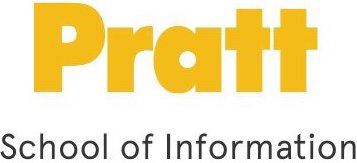Research
The goal of my research is to develop information theory, professional practices, and information and communications technologies (ICT) that support the well-being of youth in information environments. My research is transdisciplinary – traversing the fields of information science, the learning sciences, media and communications theory, and science and technology studies (STS). A major theme in my research relates to intrapersonal knowledge (self-awareness) and the socio-emotional aspects of young people’s interactions with ICT or in libraries. Explorations into young peoples’ digital and data rights, youth empowerment, and community engagement in information environments also underlie much of my work.
Youth Data Literacy
Funded Research Projects
Data Literacy with, by, and for Youth: Exploring How Teens Co-Design After-School Programs as Sites of Critical Data Practice (2020-2023)
With the active participation of young people, the project aims to design, build, and test prototypes for youth-oriented data literacy activities, for use in after-school STEM programs at the public library.
Funded by the National Science Foundation. (Award #2005608)
Investigators: Leanne Bowler, Irene Lopatovska, and Mark Rosin, Pratt Institute.
Project web site: https://sites.google.com/pratt.edu/data-activism-for-youth/home
Exploring Data Worlds at the Public Library research project (2017-2020). Supported by a grant from the Institute for Museum and Library Services.
Investigators: Leanne Bowler, Pratt Institute and Amelia Acker, UT Austin.
The project explores youth data literacy in the context of youth services in maker spaces at the public library. The goals of the Exploring Data Worlds project were to generate social science observations about young peoples’ interactions with data, including their self-awareness as data subjects, discover the unique data literacy needs of digital youth in terms of their critical and civic participation in a data driven society, and develop strategies for training youth librarians in order to provide them with the skills to empower young people.Project web site: https://www.youthdataliteracy.info/
"Mindful Making": Critical computing and informal STEM learning in Maker Spaces
This research program, supported through grants from the Sprout Foundation and the Association for Library and Information Science, investigates critical making, self-awareness, and the practice of self-critique in library-based maker spaces. See Bowler, 2016; Bowler, L. & Champagne, R., 2016, for more details.
Download a Mindful Maker Questions poster. It highlights some critical questions that mindful makers can ask themselves: http://www.mindfulmakerquestions.info
Remake Making: Understanding Adoption and Adaptation of Facilitated Making in Libraries
The study explored professional development and community-based, facilitation models in support of informal STEM learning at the public library. The project is supported by a grant from the National Science Foundation. A collaboration with principal investigator Tom Akiva (University of Pittsburgh), Kevin Crowley (University of Pittsburgh), and Peter Wardrip (University Wisconsin-Madison). See Bowler L., Akiva, T., Colvin, S. & McNamara, A. (2019). Facilitation in library makerspaces: A prototype for a professional development model for more details.
Explore facilitation methods with the Simple Interactions tool (Developed by Junelei Li (Harvard), Tom Akiva (University of Pittsburgh) and the team at the Fred Rogers Center: https://www.simpleinteractions.org
"Think Before You Click!" Designing Social Media Spaces that Afford Moments of Reflection
(Study into Cyberbullying)
This project looked at mean and cruel online behavior through the lens of design, with the goal of developing positive technologies for youth. Visual narrative inquiry – a storytelling method – was used in the early stages of this project to explore the relationship between reflection (the metacognitive piece), values, and interaction design. Seven emergent design themes were evident in the participants’ design recommendations and these design themes were then associated with a values-framework (Cheng & Fleishman, 2010). For more information, see Bowler, Knobel & Mattern, 2015; Fan, M., Liyue, Y. & Bowler, L., 2016.
Social Q&A and Teen Health
This project began with the basic question, How do teens use social media to answer their health questions? Supported through a grant from OCLC, the project looked at a health topic that is relevant to teens – eating disorders – in order to model the interactions between questioners and askers in the social Q&A space of Yahoo! Answers, with the aim of contributing to the greater understanding of youth information behavior, health information literacy, and the role of social Q&A and affect in the provision of health information to young people. See Bowler et al, 2012, 2013; Oh et al, 2013, for more information. A collaboration with Daqing He (University of Pittsburgh), Jung Sun Oh (University of Pittsburgh).

